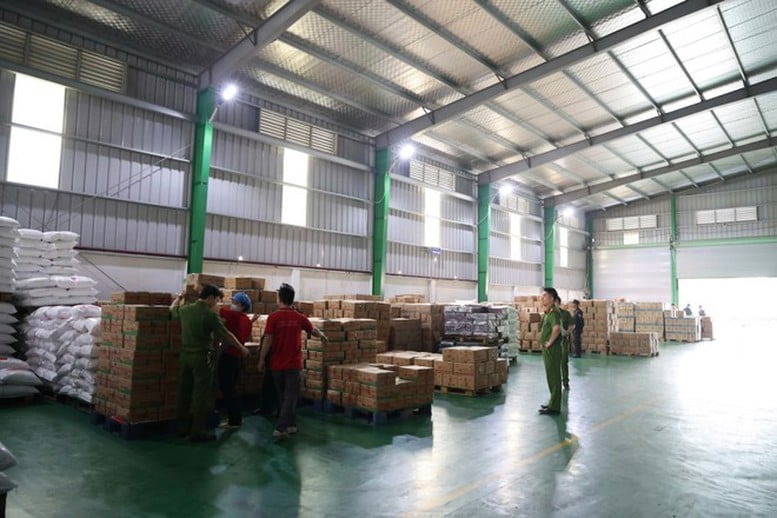
Searching the company producing fake MSG, seasoning powder, and cooking oil
Fake food infiltrates from social networks to schools...
Ms. Tran Viet Nga, Director of the Department of Food Safety, Ministry of Health, said that the unit has requested the Department of Health of Phu Tho province and the Department of Food Safety and Hygiene of Phu Tho province to recall all fake MSG products of Famimoto Vietnam Company Limited currently on the market.
This company is located in Dong Doi area, Thuy Van commune, Viet Tri city, Phu Tho province. At the same time, the Food Safety Department requested these units to review the self-declaration records of MSG products of Famimoto Vietnam Co., Ltd.; coordinate with the police agency to handle and resolve according to the provisions of law.
The Food Safety Department also recommends that people and collective kitchen organizations do not use fake MSG products of Famimoto Vietnam Co., Ltd. in food production and business.
According to the leader of the Food Safety Department, recently, many cases of poor quality food and fake food have been continuously discovered, such as the seizure in Phu Tho of more than 71 thousand liters of cooking oil, about 40 tons of MSG, 22 tons of seasoning powder, 9 tons of fake broth powder, dozens of tons of food of unknown origin such as frozen chicken, frozen chicken organs, sausages, Chinese sausages, mixed hotpot balls... discovered and seized in Hanoi ; chemical impregnation of bean sprouts in Nghe An...
In particular, the way of consuming and distributing these poor quality and fake foods is very different, from social networks, traditional markets, to bringing them into collective kitchens, industrial zones, schools... with the advantage of cheap prices.
This is not only an immediate threat such as causing acute food poisoning, digestive disorders, nausea, vomiting, diarrhea... but also leaves long-term and serious consequences for health such as chronic diseases: cancer, liver failure, kidney failure, affecting the reproductive system... due to contamination with chemicals and pathogenic microorganisms.
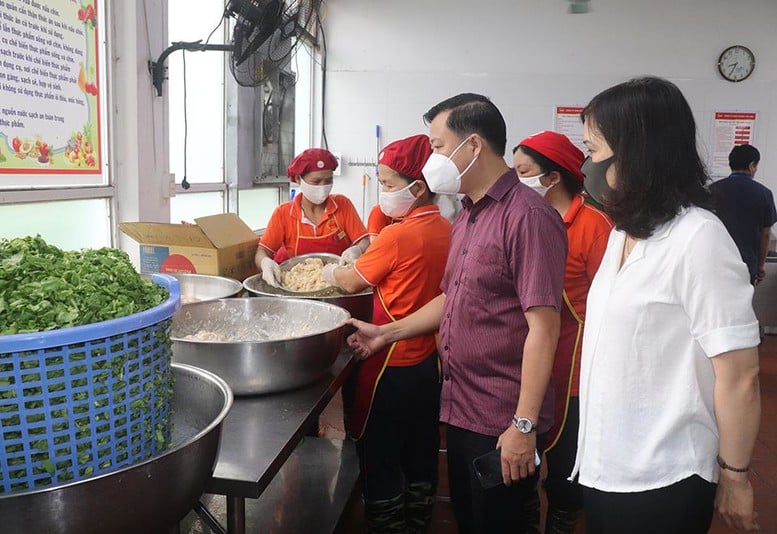
Checking the collective kitchen in Hanoi
Causes major health consequences
Affirming that food safety in collective kitchens is extremely important, ensuring the health of the production force - workers in industrial parks, factories and ensuring the health of students in schools, the future workforce of the country, the leader of the Food Safety Department said that when food safety is lost, it will cause consequences such as a large number of people getting sick, affecting not only the production of enterprises, students, and students taking time off from school, but also overloading the health system, causing damage to the health and economy of students, workers, and businesses, causing social instability.
To ensure food safety in collective kitchens, the Food Safety Department recommends that units and organizations comply with regulations on physical facilities such as: kitchens must ensure sufficient area, be arranged according to one-way rules, and ensure no cross-contamination between unprocessed and processed foods.
Cooking and processing utensils must ensure hygiene and safety; storage areas must have enough equipment and tools as required; there must be enough tools to collect and contain garbage and waste, ensuring hygiene and daily cleaning; ensure compliance with food safety regulations, knowledge and practices for food processors and servers.
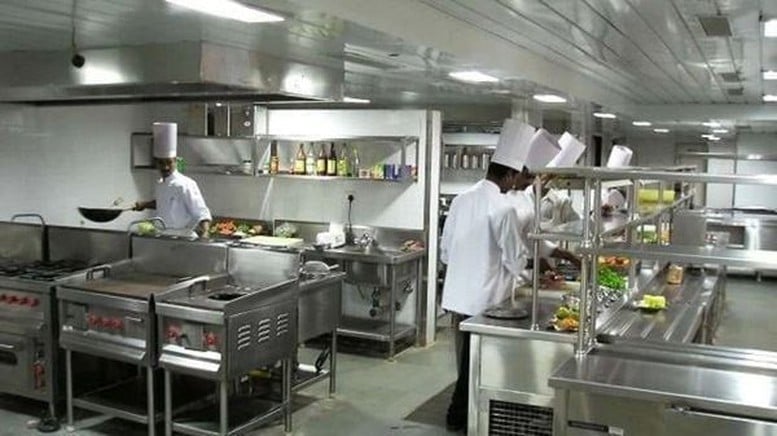
The Ministry of Health recommends that input materials at collective kitchens should only be imported from reputable suppliers with business licenses and food safety certificates.
4 principles to "deal with" fake food in collective kitchens
For food processing ingredients used in food processing in collective kitchens, this is a source that plays a very important role. Therefore, the Food Safety Department emphasizes the need to strictly implement 4 principles to ensure safety in collective kitchens.
First, select input materials.
Input materials must have clear origin, only import materials from reputable suppliers, with business licenses and food safety certificates.
Check the quality of raw materials to make sure they are fresh, not crushed, and have no signs of damage or mold; prepackaged processed ingredients, food additives, flavorings, and spices must have labels that are properly labeled and within their expiration date.
At the same time, it is necessary to sign a raw material supply contract with units that commit to ensuring quality, having periodic inspections, having records, and being able to trace the origin when an incident occurs.
Second, the preliminary processing and processing procedures
The processing area must be clean, clearly divided, and raw and cooked foods must be processed separately.
Processors need to wash their hands regularly, wear protective clothing, hats, and masks throughout the work process.
Processing tools must be cleaned before and after use.
Third, food preservation
Storage facilities must comply with food safety regulations. Food must be stored at appropriate temperatures to avoid cross-contamination and harmful insects and animals.
Follow the FIFO ("First In, First Out") rule - use raw materials first, avoid holding inventory for too long.
Fourth, carry out regular sampling, monitoring and testing.
Collective kitchens need to store food samples according to regulations to serve the retrieval work when needed.
At the same time, conduct internal inspections and build an internal food safety inspection team to conduct periodic and surprise inspections.
Regularly train and organize food safety knowledge training courses for all kitchen staff.
The Food Safety Department recommends that every employee and every kitchen manager needs to be aware that food safety is a responsibility, an ethics, and the protection of public health. Do not trade the trust and safety of hundreds and thousands of people for immediate benefits.
Thuy Ha
Source: https://baochinhphu.vn/thuc-pham-gia-len-loi-qua-nhieu-duong-tieu-thu-102250428074932699.htm











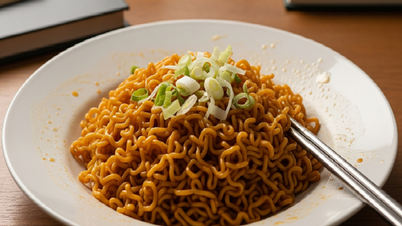




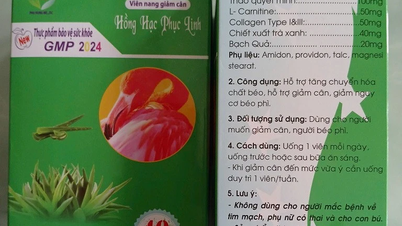








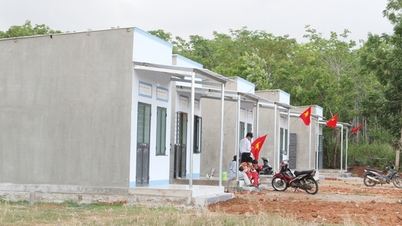













































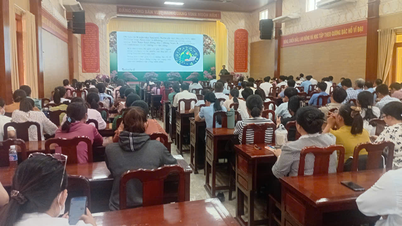


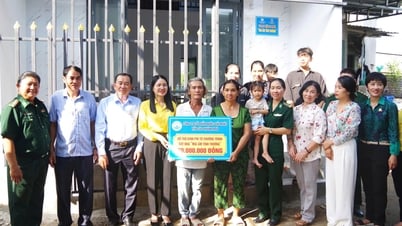
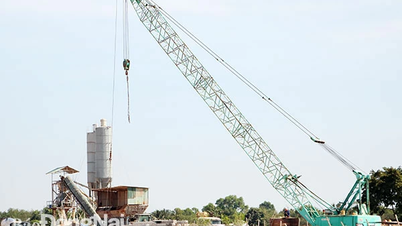

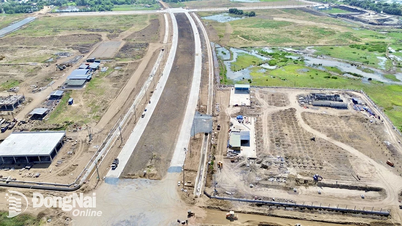








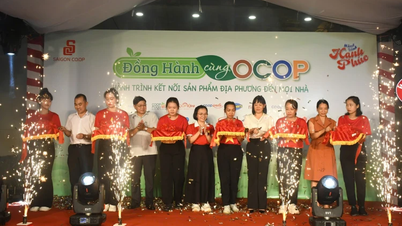







Comment (0)